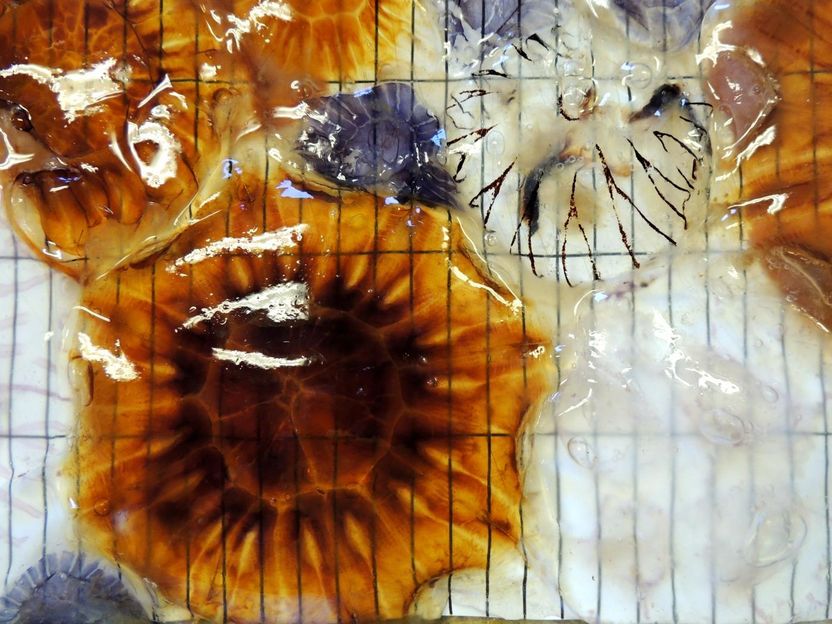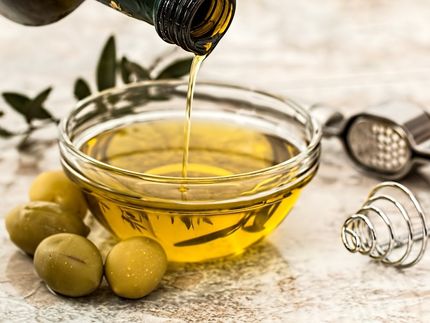Jellyfish help scientists to fight food fraud
Animals feeding at sea inherit a chemical record reflecting the area where they fed, which can help track their movements, according to a new study by scientists from the University of Southampton.

Jellyfish from the North Sea.
Katie St John Glew
Chemical testing of the source of marine food products could be a powerful tool to help to fight food fraud, maintain healthy sustainable fish stocks or marine protected areas, and ensure consumer confidence in marine eco-labelling.
Tracing the location of marine animals is difficult as they generally can't be seen and are often a long way from the nearest person.
The Southampton research team, led by Dr Clive Trueman and PhD student Katie St John Glew, built maps of chemical variation in jellyfish caught across the North Sea. They then compared the same chemical signals in scallops and herring caught in known places across the North Sea, and used statistical tests to find the areas of the North Sea with the most similar chemical compositions. These chemical tests were able to accurately link scallops and herring to their true locations, and can be used to test if the chemical composition of an animal matches a claimed area of origin.
Dr Trueman, Associate Professor in Marine Ecology, said: "Understanding the origin of fish or fish products is increasingly important as we try to manage our marine resources more effectively. Fish from sustainable fisheries can fetch a premium price, but concerned consumers need to be confident that fish really were caught from sustainable sources.
"Recently, genetic tests have revealed widespread mislabelling of the type of fish being sold worldwide, but currently we don't have any way of testing where a fished product was caught."
Original publication
Clive N. Trueman , Kirsteen M. MacKenzie , Katie St John Glew; "Stable isotope-based location in a shelf sea setting: accuracy and precision are comparable to light-based location methods"; Methods Ecol Evol; 2016
Original publication
Clive N. Trueman , Kirsteen M. MacKenzie , Katie St John Glew; "Stable isotope-based location in a shelf sea setting: accuracy and precision are comparable to light-based location methods"; Methods Ecol Evol; 2016
Organizations
Other news from the department science

Get the chemical industry in your inbox
By submitting this form you agree that LUMITOS AG will send you the newsletter(s) selected above by email. Your data will not be passed on to third parties. Your data will be stored and processed in accordance with our data protection regulations. LUMITOS may contact you by email for the purpose of advertising or market and opinion surveys. You can revoke your consent at any time without giving reasons to LUMITOS AG, Ernst-Augustin-Str. 2, 12489 Berlin, Germany or by e-mail at revoke@lumitos.com with effect for the future. In addition, each email contains a link to unsubscribe from the corresponding newsletter.





























































